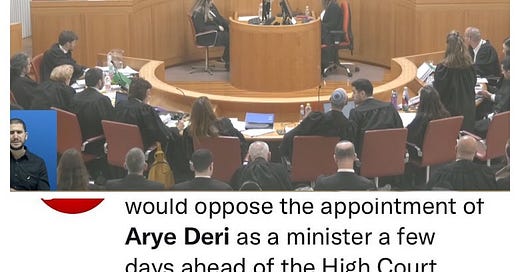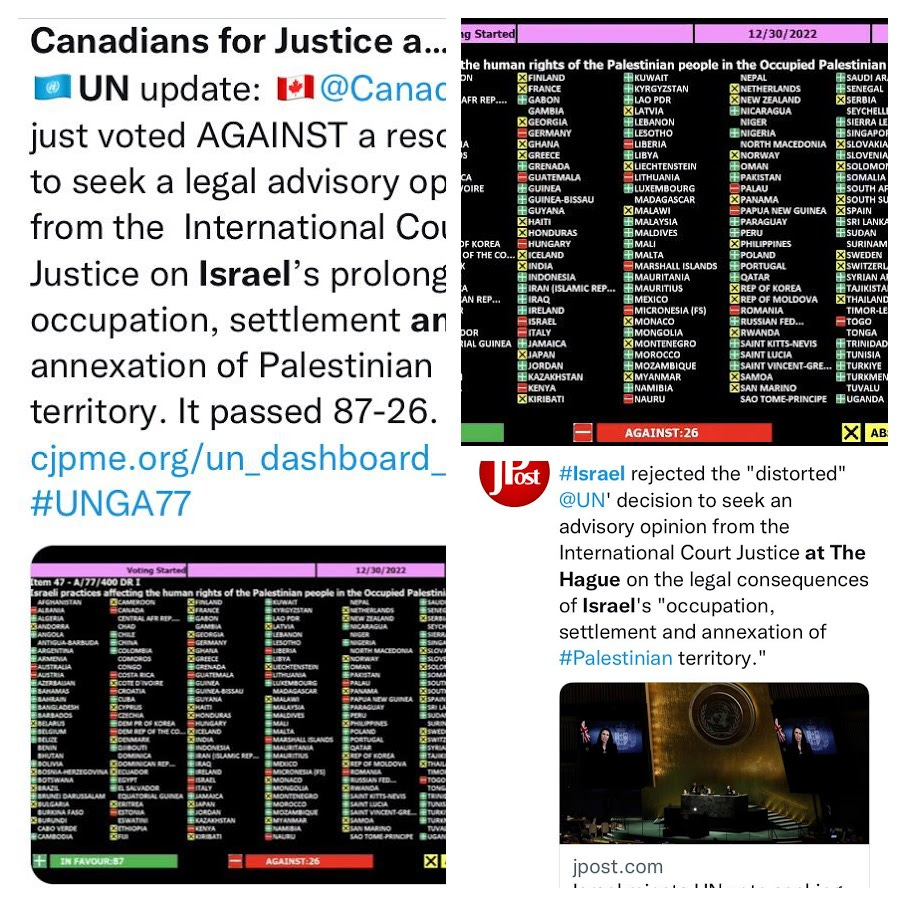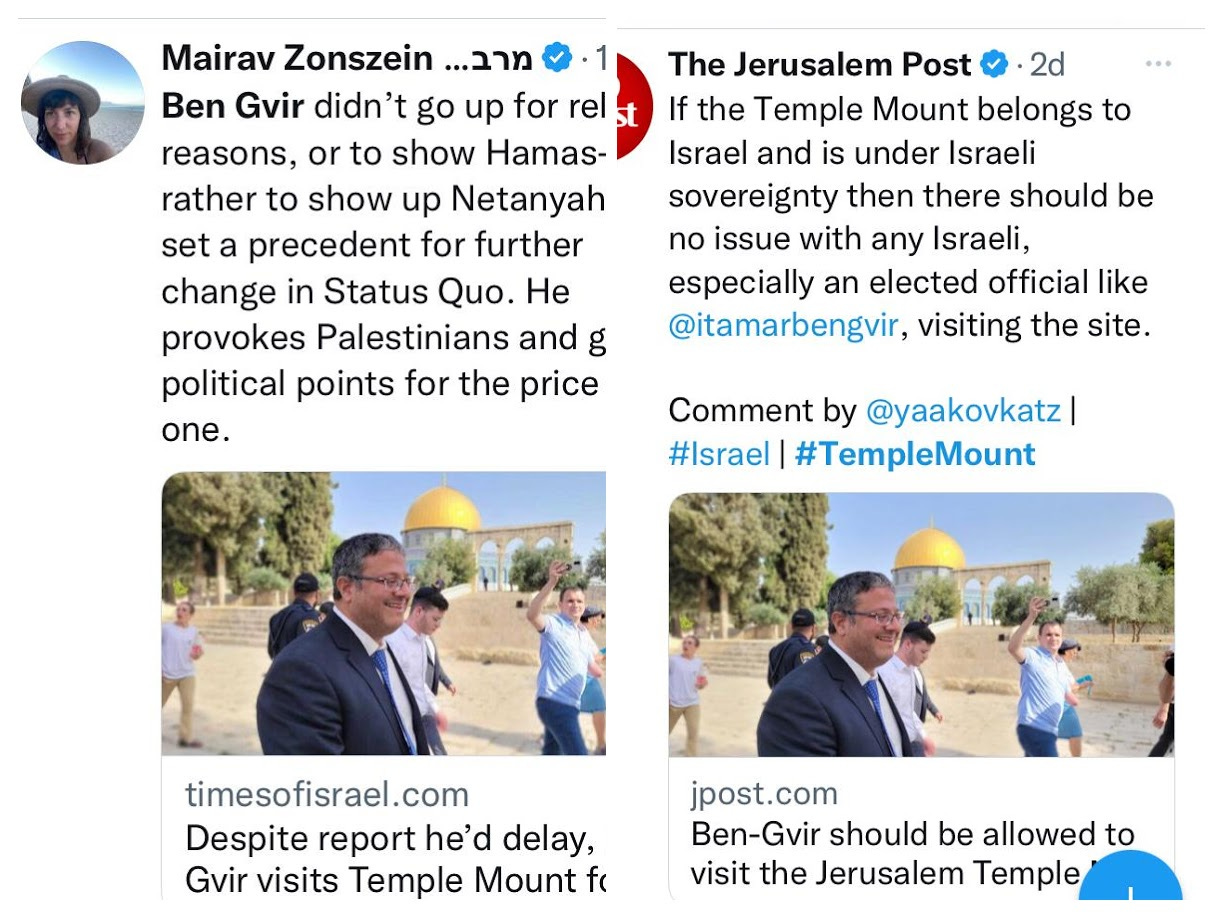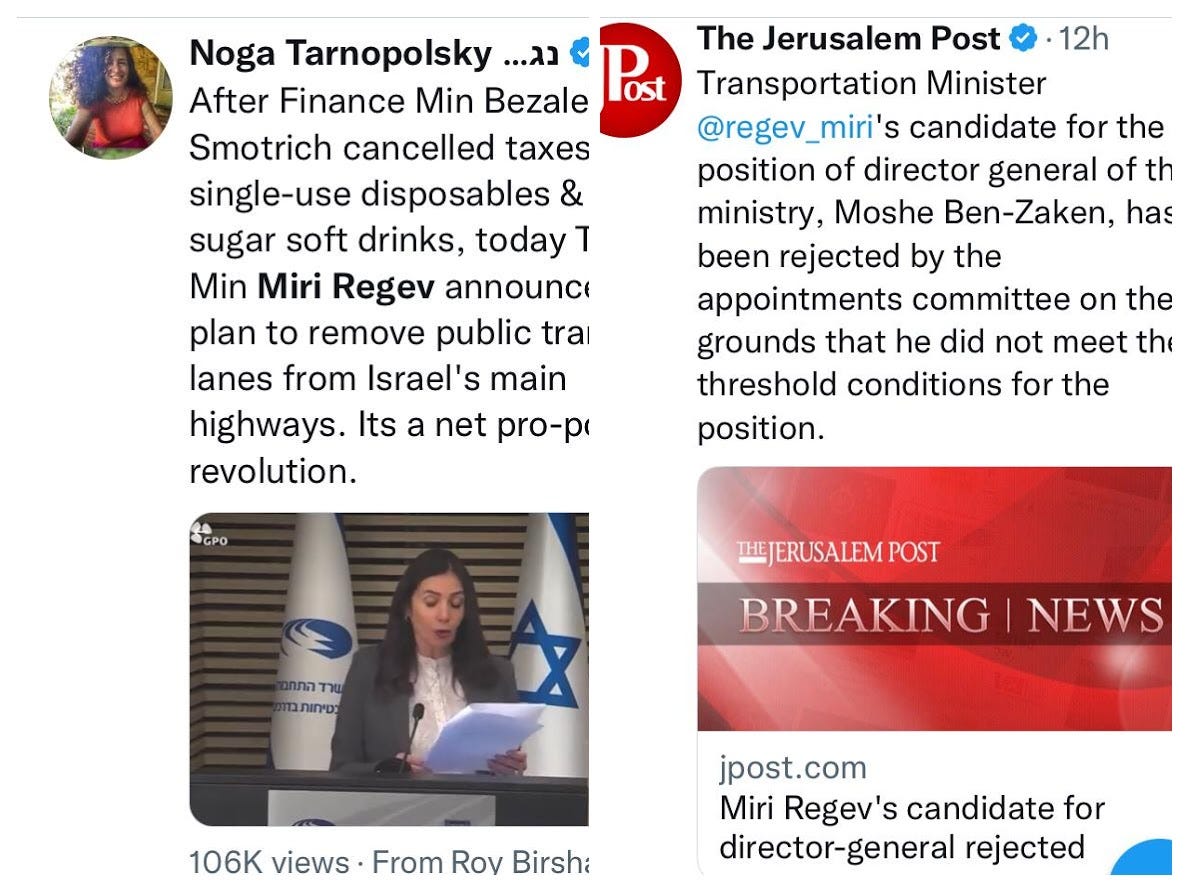Israels High Court of Justice Heard Arguments Challenging the Nomination of a Minister Who Was Convicted in a Plea Deal and was Sentenced to Probation: PM Netanyahu nominated Arye Deri, the leader of the Sephardi Jewish orthodox party, Shas, to be the Minister for Interior and Health. Deri admitted to tax evasion as part of a plea deal, and was sentenced to probation. According to the basic law in Israel, someone who was sentenced to prison is not qualified to hold the position of a minister. The Knesset changed the law prior to the nomination, so that someone who was sentenced to probation will not be disqualified from serving as a minister.
In a relatively rare position the State Attorney General decided not to support the position of the government and in her response to the petitions, she argued that the nomination is not unreasonable (a legal term that is part of the Israeli code of laws).
PM Netanyahu had to hire a private attorney that will represent his position.
The court session was streamed live on the court website.
Prior to the session of the High Court of Justice, the Minister of Justice, Yariv Levin, one of the closest political allies of PM Netanyahu, presented a reform he plans to execute. In a press conference that was broadcast live on all Israeli TV channels, Levin introduced three main changes he intends to enact: A. The proposed Supreme Court Justices will not be nominated by a diverse committee of Justices, political figures and representatives of the Israeli bar, but politicians will nominate prospective Justices. It is important to say in this context that unlike most democracies, Israel does not have a constitution to safeguard minority rights. B. To enact an override law for supreme court rulings. The new legislation will need a majority of only 61 out of 120 Knesset members to override any Supreme Court ruling. C. Change the status of the legal advisors at the ministries to personal advisors. That means that the legal advisors will no longer be subject to the Attorney General, but to the minister in the department they work for.
Many analysts explained that the press conference of the Minister of Justice was a direct threat to the Supreme Court Justices before they rule on the petition. Analysts also claim that the reforms introduced by the Minister of Justice will destroy the independence of the legal system and will severely impact the principle of the separation of powers between the legislative and the judicial.
While the court was in session, hundreds of people demonstrated against the reforms, against the nomination of Deri and in support of the independence of the Supreme Court. The ruling on the petition will be given at a later date.
The UN decided to Allow the International Court in The Hague to Evaluate Whether the Israeli Occupation in Palestinian Territories Can Be Considered as Annexation Merely Because of the Time Elapsed: Israel occupied the West Bank and Gaza Strip during the June 1967 Six Day War. Currently, Israel still occupies the West Bank, and during the 56 years that have passed, Israel has built hundreds of settlements in the occupied territory, and now more than half a million Israelis live in those settlements as well as an additional 240,000 Jewish Israelis who live in the annexed area of conquered East Jerusalem. So far the High Court of Justice has not examined the question of the legal status of the areas conquered by Israel in 1967, and the UN decision is a precedent. Israel decided not to cooperate with the international court. Israel claims that the territories are not occupied because they were taken from Jordan, and Jordan does not have any territorial claims over those lands. So the legal Israeli claim is that it did not occupy those lands from any State entity. Israel also claims that those are the lands that were promised to the Jewish people thousands of years ago as dated in the Jewish Bible.
Minister of National Security Visit to Temple Mount Causes Widespread International Criticism, UNSC Holds Emergency Session: Itamar Ben Gvir, the far-right minister of national security made his first visit to the Temple Mount since his appointment. The visit itself, under heavy police escort, was brief and did not lead to any violence at the Al-Aqsa Mosque compound. After the visit, Ben Gvir posted on social media, referring to his visit and to warnings from Hamas leaders, that the visit will lead to an escalation in violence: “we will not flinch in the face of a terror organization”.
Critical responses from the international community, from the US, Europe, and the Arab world, followed shortly thereafter. Jordan summoned the Israeli envoy and publicly reprimanded Israel for the visit: “Jordan condemns in the severest of terms the storming of the Al-Aqsa Mosque and violation of its sanctity”. The spokesperson for the US Embassy in Israel said, in a public statement: “Ambassador Nides has been very clear in conversations with the Israeli government on the issue of preserving the status quo in Jerusalem’s holy sites. Actions that prevent that are unacceptable”. Similar messages were made in France and the UK.
The UAE and Saudi Arabia also condemned Ben Gvir’s visit. PM Netanyahu’s upcoming visit to the UAE was postponed, although his office said that it was for logistical reasons, and not as a result of Ben Gvir’s visit to the temple mount.
The UN SecurityCcouncil held an emergency session on Thursday, two days after Ben Gvir’s ascent to temple mount. At the session, the representative of the United Arab Emirates said it "condemns the serious provocations that threaten the Al Aqsa Mosque, and the storming of the mosque by an Israeli minister under the protection of Israeli forces. Such provocative actions reflect a lack of commitment to the status of the holy site in Jerusalem, and they further destabilize the fragile situation in the occupied Palestinian territories. They also constitute a serious development that moves the region further away from the desired path of peace."
Both the USA and Russia also criticized Israel at the UNSC session. The American representative to the Council said that the US is concerned “by any unilateral acts that exacerbate tensions or undermine the viability of a two-state solution” and reiterated how critical it was for “for all sides to exercise restraint and refrain from provocative rhetoric. We expect the Israeli government to follow through on its commitment to retain the status quo." Palestinian envoy to the UN Dr. Riyad H. Mansour said that the UNSC must stop Israel from breaching the status quo at the temple mount, and concluded: “If you will not do it, we will”. The Israeli envoy to the UN Gilad Erdan said that the words of the Palestinian envoy represent a threat.Incoming Minister of Transportation to Cancel Public Transport Lanes: shortly after assuming office, the new minister of transportation, Miri Regev (Likud) announced that she is considering scrapping the public transportation lanes (PTL), introduced by her predecessor, Merav Michaeli (Labor). PTLs are lanes expressly reserved for public transportation vehicles only. Regev claims that PTL’s have not proven effective in alleviating traffic jams in inter-city highways and simply create more congestion in other lanes.
While there are long-term plans for cross-country metros, improved train services and local light train lanes, PTLs are relatively quick to implement since they make use of existing highway lanes.
Transportation and environmental specialists said in response that Regev’s announcement was populist and that perhaps she was seeking to please certain lobby groups. They emphasized the advantages of PTL’s in encouraging people to use public transport instead of private vehicles.
The Pop Music Magazine Rolling Stone Listed an Israeli Singer Among the 200 Greatest Singers of All Time: Ofra Haza, who passed away 23 years ago, from an AIDS related disease, was listed as the 186th greatest singer of all time by the magazine. Haza was of Yemenite origin, and became famous in Israel at a young age. She had a clear and powerful voice, and was successful internationally, in the 80s’ and 90s’ in the genre of world music. Her music is a fusion of Eastern and Western with lyrics from Mizrahi and Jewish folk stories and poetry. She regularly featured in many movie soundtracks, such as Dick Tracy 1990, and in the Prince of Egypt 1998.
For further Reading:
High Court of Justice: Here, here, here
UN Decision: Here, here, here, here
Temple Mount: Here, here, here, here, here










